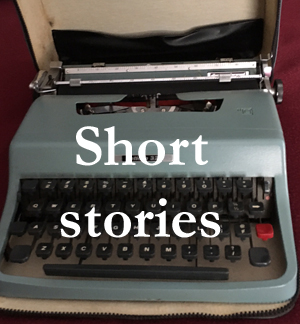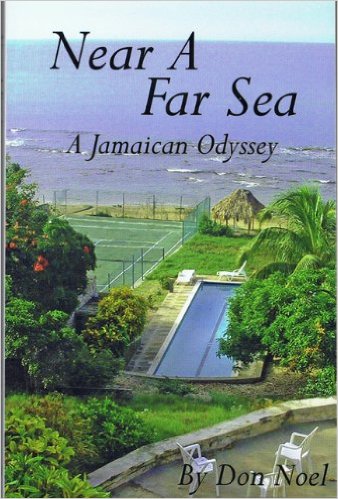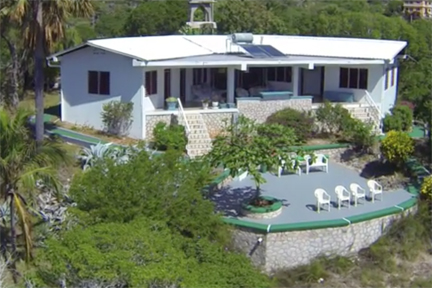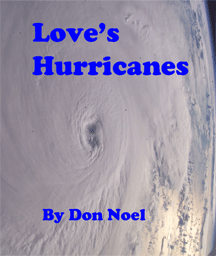Published in April 2017 in a Zimbell House anthology, “The Mountain Pass”
“What’s in the belt pack?” Uncle Charlie wants to know.
“Emergency stuff. Compass, flashlight, first aid kit, matches.”
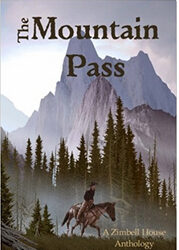
“Compass won’t do any good strapped on your ass. You gotta keep it out, and know what direction you’re walking. We’ll hunt alone. If you get lost in these mountains, knowing where is north won’t do you a helluva lot of good. You gotta know which way you’ve been hiking.”
A lecture, for God’s sake, Jerry thinks. He’ll be glad to hunt alone tomorrow. Dad and Charlie and his pal Harry want to make this a rite of passage. The last thing he needs is middle-aged men testing his manhood. All he wants is to bag an elk for the freezer.
All right, it’s more than the freezer. Most guys, at some point, want to test themselves. On TV, it’s usually with a car. In Montana, a horse and rugged mountains.
They’re packing in, a two-hour climb, 4,000 feet up from Uncle Charlie’s, which was already a mile high. Charlie’s not really his uncle, but for years has taught Jerry to ride and shoot and play pool. So maybe he’s entitled to lecture.
Jerry’s riding Penny, a pinto mare that has to be unwound every morning. When he climbed into the saddle, she danced around. He held her in a tight circle the way Charlie taught him, and she settled down. His mentor gave him an approving look.
The smoke curling from Charlie’s chimney grows distant. Then the four-wheel track disappears.
“The trailhead,” Charlie says. “Even a Land Rover can’t make it through McGregor Pass. Too narrow, too steep. Check your saddle cinch, then let’s go.”
In a thick pine forest, Jerry understands why they’ll hunt on foot: The horses crackle noisily through dry branches. From occasional ridges the views explain what Big Sky means. They don’t linger to gaze; even in mid-afternoon, the November wind is cold; it will be below zero tonight. Then suddenly they’re into camp: Two tents, flaps rolled back and tied so they look like open garages.
“You leave both tents up?” Dad spares Jerry the asking. It’s his first trip, too.
“Sure. The trees are so thick you wouldn’t know this was here unless you came by when a fire was lit, and even then you’d miss it if the wind was wrong.”
“And left open?”
“Bears are curious. Close the tent, and they’ll claw their way in, looking for eats. Leave it open, and they’ll mosey around and quit. See that bundle slung up in the tree?”
“Food?”
“Wouldn’t dare leave food. Cook-pots. Hoisted up so bear won’t trouble them for the little food-smell left.”
A plane buzzes overhead. Charlie runs out to a little open hollow and waves his red-checked lumber jacket. The plane banks; three hay bales slide out, tumble down. Thump! like bombs. One busts open, but baling wire holds the other two intact.
“Beats packing it in,” Charlie says. “You saw how the pack saddles banged against trees on the way up? Try that with bales of hay slung on each side of a horse.” He shows Jerry how to get a bale on his back and carry it back to camp. Charlie and Dad scoop up the broken one, then lead the horses to drink before the stream freezes.
Charlie rigs a picket line, a long lasso between two trees, to which they tie each horse by a 20-foot tether so they can move, protect themselves if a bear comes. While they munch hay, Jerry and Dad put blankets on them; they look like medieval mounts. They have thick coats — Charlie doesn’t blanket them down at the ranch — but it’s colder up here.
“Before we start home,” he says, “we’ll bring the bridles into the tent, hang them over the stove. Put a steel bit that’s below-zero cold into a horse’s mouth, and that horse that will argue with you all day long; never will settle down to a decent ride.”
Charlie and Harry lower the stuff from the tree: two folding stoves with chimneys, pots, tools. They’ll all four sleep in the cook tent, and put the saddles and tack and chainsaw in the other. Charlie makes mulligan stew while Jerry and Dad go back to the creek for water. They don’t linger over supper. Harry breaks open a bottle, giving Jerry a glass too, and the men tell hunting stories for his benefit. They try to spook him that bear might wander into camp, but with the food now slung up in the tree, that’s just more rite-of-passage stuff. Then bed. Jerry burrows into his double-down sleeping bag, thrashes to warm it, and is half-asleep before the lantern is doused.
Dawn is bone-chilling cold. Charlie has the fire roaring; the smell of his coffee gets everyone going. Even wearing the longies he kept on overnight, Jerry’s jeans and wool shirt feel like ice; he is grateful for down gear to go on top of it all. After a breakfast of eggs and ham, they sling stuff back into the tree, feed and water the horses, and go down to the meadow, where Uncle Charlie shows them his geodetic maps. “Study them,” he says. Jerry takes one and starts, but the lecture isn’t over. “We’ll be spread out. If you see an elk, be sure it’s a clean shot, against a hill, in case you miss. Don’t want stray bullets hitting any of us.”
“And fix in your mind where you’ve been, so you can find your way back. Jerry, you use that compass, hear? Build stone cairns to mark your way. Like Hansel and Gretel. If you bag one, don’t kill yourself dragging; we’ll come get it with the horses. And have a great day.”
There is fresh track: Elk came to the stream where it flowed hard enough not to freeze solid. Charlie sends Jerry after what seems a good-sized buck headed downstream. With the sun just up, he needs no compass: Southwest. The others strike out upstream before going separate ways.
He wants to move briskly to stay warm, but his boots clatter noisily on the frozen ground. His buck doesn’t stay in the stream valley long; Jerry makes out a track where it jumped the bank. Scuffing a few flat stones out of the ground with his heel, he makes a cairn, then follows, climbing hard though beetle-thinned lodgepole pines, then into a thicker, pungent belt of spruce. He looks back, trying to memorize how the meadow looks from here. There is no hint of the camp. He finds stones for another cairn.
It’s demanding: Watch where you step to make no noise; keep track of where you’ve been; watch for elk sign, and for downed trees where a bear might bed down for the day. Uncle Charlie claims he can smell a bear at fifty yards. Jerry pauses, sampling spruce, juniper, sagebrush, his own sweat. Hiking uphill, with the heavier cold air still settling, his scent won’t get ahead of him.
Movement a hundred yards ahead, through a stand of dead lodgepoles: an elk, just moseying along. In easy range, but out of sight before Jerry can unshoulder his rifle. He walks again, keeping one eye on where the elk was, trying not to step on dry branches.
It turns into a two-hour chase, with only fleeting glimpses. The elk isn’t spooked, just traveling. No, meandering: It finds a meadow with some feed to one side, and then is off in a different direction. Jerry follows over ridges and down through narrow valleys. It’s hard keeping track of the ground covered; no time for checking compass directions or making cairns. He tries to memorize downed trees, rock outcrops. Scattered cumulus puffs at dawn have thickened into a cloud cover, making it harder to keep bearings by the sun. He wonders if the clouds will bring snow.
Over a rise, in a grassy break at the foot of a limestone-white outcrop, there is his elk, head down, nibbling. A better rack than he’d remembered. A long shot, but safe enough. He eases down on one knee, unslings the .30-30 and brings it to his shoulder. The elk picks its head up, then trots a few yards into the trees. Re-shouldering the rifle, Jerry makes a cairn and starts down a bit of talus, managing to avoid rattling the rocks.
The others must not be having any better luck; he hasn’t heard any shots echoing through the mountains. He should have asked Charlie how far a shot carries.
He begins to worry about finding his way back. Iron Mountain, which Charlie showed them on the geodetic map, was dominant above the timberline from the campsite, but has seemed to move around whenever Jerry espies it. Now he’s stopped seeing it. He has lost track of time, too. How long ago did he screw up that shot? Hasn’t seen the elk since.
He retraces his steps to where he saw it, and uses the compass to get his bearings. If he’d stayed on a southwesterly course, the camp ought to be to the northeast. Nothing seems familiar. He hikes the ridge, looking for a landmark, wishing he’d made more cairns.
Then: a four-wheel track below, the stream bed beyond it. Allowing himself a sigh of relief, he hikes down and checks the compass. The narrow canyon runs north-south. The stream, just beyond the jeep track, is frozen silent, but north seems slightly uphill, so he sets out. After twenty minutes, the track rises to a crest. Ahead, beyond a shallow valley, are winter wheat fields. Damn! He’s been hiking in the wrong direction.
His legs are tiring, the shadows lengthening. But there must still be time to follow the track back until it peters out at a trailhead leading upward. With luck, he can still make it back to camp before dark. “Stay cool,” he says aloud. “Don’t panic.”
His voice sobers him. He needs a contingency plan. In the last hour, there hasn’t been much to make a good bivouac if it comes to that. Windfall trees up above might have offered shelter, with a fire to reflect warmth, but that’s a long way back. A fire would feel great. Down is supposed to breathe, and his special long-johns are supposed to wick moisture away, but there are clammy places under his arms and across his belly.
A stand of juniper. He can almost hear Charlie: “Starting a fire in the cold isn’t as easy as you’d think.” Wood, he’s taught, has to reach a kindling point, hot enough to burn. “A big chunk will never kindle. That’s why matchsticks are skinny, and why you split logs and find skinny dry branches.” Juniper bark, Jerry remembers, is better even than paper to start a fire. He leaves the track to strip off some bark, soft and fuzzy and dry. Pulling the parka’s zipper down and its drawstring tight around his waist, he makes a pouch, and tears off enough to fill a grocery bag.
*
Bill is first back into camp, Charlie just behind, Harry in another quarter-hour. No one has had even a good look at an elk. Charlie has them walk the horses to the stream to drink, then grain them and break open a second bale of hay. Meanwhile he fires up the stove, wraps four big Idaho potatoes in foil and puts them inside. He sends Bill out to the meadow again. “Halloo, as loud as you can, then listen.” The winter sun is already on the horizon; the lantern-light and stove-smoke are not as cheering as they should be.
“He’s got another half-hour at most,” Charlie says. He pulls the potatoes out of the stove, and puts in another chunk of pine. He’ll hold the steaks. Bill goes back to the meadow to halloo, his voice echoing off the darkening hillsides. Harry joins him with a huge armful of pine and the kerosene tin. He strikes a match and soon has a good fire. A beacon. Both men go back for more logs, enough to keep the fire blazing for several hours more.
Charlie has put the steaks into a frying pan on the stove. “We’d better eat,” he says. “It won’t be the end of the world if he doesn’t make it back in. He’s got enough sense to hole up under a fallen tree, and build a fire, and maybe make a lean-to. He’s dressed warm. Bears won’t bother him. He’ll get cold as hell, but he’ll survive.”
They eat in silence. Harry and Bill lug a few more logs out to meadow; sparks rise into a sky that has turned from purple to black.
“Jerry won’t be in tonight,” Charlie says. “Let’s call his mother.”
“Sure,” says Bill. “With what?”
“My cell phone. It’s got great range at this altitude.”
“I dunno. Why get her upset?”
“She’s his mother. Her son is somewhere in the Montana mountains at 9,000 feet or so. He’s gonna make it, just a little the worse for wear. But she’s got a right to know. Maybe a little prayer will help.”
Bill gives him the number, and he dials.
*
Jerry remembers Charlie’s words as they came into camp last night: “The trees are so thick you wouldn’t know this was here.” The dark has deepened. He won’t find that camp tonight. Reluctantly, he reverses course again. He’ll go down to those wheat fields. The bark in his parka is warm; if he sprains an ankle, he may yet need a fire. He watches for places where he might hole up for the night, trying to mark them in his mind.
The dirt track tees into a paved road; he sees the lights of a ranch house, and reaches it in a half-hour. He phones his mother, and the rancher takes the phone to give her directions. The wife gives him a cup of coffee whose warmth starts its way down to his toes.
Just as his mother arrives, her cell phone rings. She answers it, then hands it to him. “Your father.”
“No, Dad, I didn’t really get lost,” he lies. “Just ran out of time. Got sensible and hiked out. Nice folks here took me in and called Mom. Maybe she can drive me up to the trailhead in the morning, and I’ll hike back in.
“Listen, you get a good night’s sleep now.”
*
The fire in the meadow is down to embers. Charlie declares the night calm enough to let it die out by itself. He breaks out the whisky. He and Harry and Bill make a little toast, then turn in for a better night’s sleep than they’d been expecting.
It would have been great if Jerry bagged an elk just before making it back into camp next day, but no such luck. Some rites of passage are incomplete.
-End-

